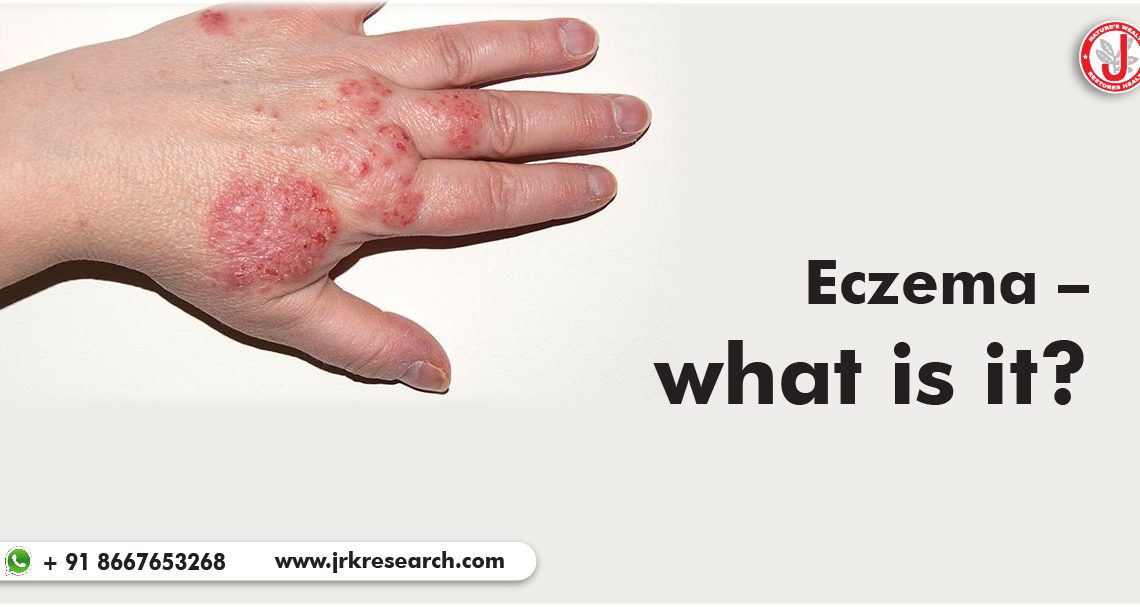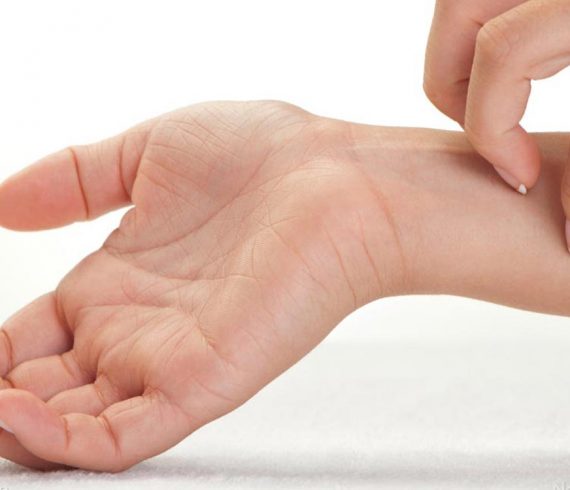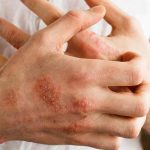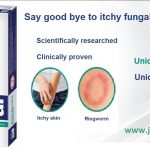

Eczema
Eczema is a skin condition that causes dry and itchy patches of skin. It’s a common condition that isn’t contagious. Symptoms of eczema can flare up if you contact an irritant or an allergen.
What are the types of eczema?
There are several types of eczema. Each type has unique triggers that can affect your skin’s barrier function, including
- Atopic dermatitis.
- Contact dermatitis.
- Dyshidrotic eczema.
- Neuro dermatitis.
- Nummular eczema.
- Seborrheic dermatitis.
It’s possible to have more than one type of eczema at the same time.
Who does eczema affect?
Eczema can affect anyone at any age. Symptoms usually appear during childhood and last into adulthood. There is more risk of eczema if there is a family history or a diagnosis of:
- Dermatitis.
- Allergies.
- Hay fever.
- Asthma.
What causes eczema to start?
The first signs of eczema are itchiness, dry skin and a rash. These signs indicate that you came into contact with a trigger in your environment that caused your symptoms to start or flare up. Identifying environmental triggers and avoiding them can reduce the risk of an eczema flare-up in future.
SYMPTOMS AND CAUSES
What are the symptoms of eczema?
Symptoms of eczema include:
- Dry skin.
- Itchy skin.
- Skin rash.
- Bumps
- Swelling.
What causes eczema?
Several factors cause eczema, including:
- Immune system: In the case of eczema immune system overreacts to small irritants or allergens (triggers) in the environment. When you contact a trigger, your immune system assumes that these small irritants are foreign invaders, like bacteria or viruses, that can harm your body. As a result, the triggers activate your body’s natural defense system. Your immune system’s defense is to create inflammation. Inflammation causes symptoms of eczema on your skin.
- Your genes: You’re more likely to have eczema if there’s a history of eczema or dermatitis in your family. You’re also at a higher risk if there’s a history of asthma, hay fever and/or allergies. Common allergies include pollen, pet hair or foods that trigger an allergic reaction. You could also have a genetic mutation that causes your skin’s barrier function to not work as it should.
- Your environment: There’s a lot in your environment that can irritate your skin. Some examples include exposure to smoke, air pollutants, harsh soaps, fabrics such as wool, and some skin care products. Low humidity (dry air) can cause your skin to become dry and itchy. Heat and high humidity can cause sweating and that can make itchiness even worse.
- Emotional triggers: Your mental health could affect the health of skin, which can cause a flare-up of eczema symptoms. High levels of stress, anxiety or depression may have more frequent flare-ups of eczema symptoms.
What triggers eczema to flare up?
Eczema affects each person diagnosed with the condition differently. Common triggers that causes eczema include:
- Dry weather (low humidity).
- Fabrics or clothing material.
- Makeup or skin care products.
- Smoke and pollutants.
- Soaps and detergents.
- Stress or emotional well-being.
- Touching something you’re allergic to.
Do certain foods trigger eczema?
If you have food allergies, then one of the reasons why you must avoid that food is that it may cause or worsen eczema symptoms. Examples of common allergies include:
- Peanuts.
- Dairy.
- Eggs.
Is eczema contagious?
No. Eczema isn’t contagious. Eczema can’t spread through person-to-person contact.
MANAGEMENT AND TREATMENT
Eczema is a chronic condition, but few steps can be taken to avoid triggers and prevent symptoms from affecting the skin.
Treatment for eczema is unique depending on what caused the symptoms to flare up. Treatment for eczema includes
- Using gentle or sensitive skin moisturizers throughout the day. Apply moisturizer when skin is damp after a bath or shower.
- Apply topical medications to skin as advised by doctors, like topical steroids.
- Avoid triggers that cause symptoms of eczema to flare up.
Dr. JRK’s research and pharmaceuticals has formulated lippu oil enriched with Pongamia pinnata infused in Oleum cocos nucifera to decrease eczema reactions Reduces itching and hyper-thickening of skin and Gently exfoliate dead cells. lippu oil Inhibits eczema causing Staphylococcus aureus in 5 minutes.








